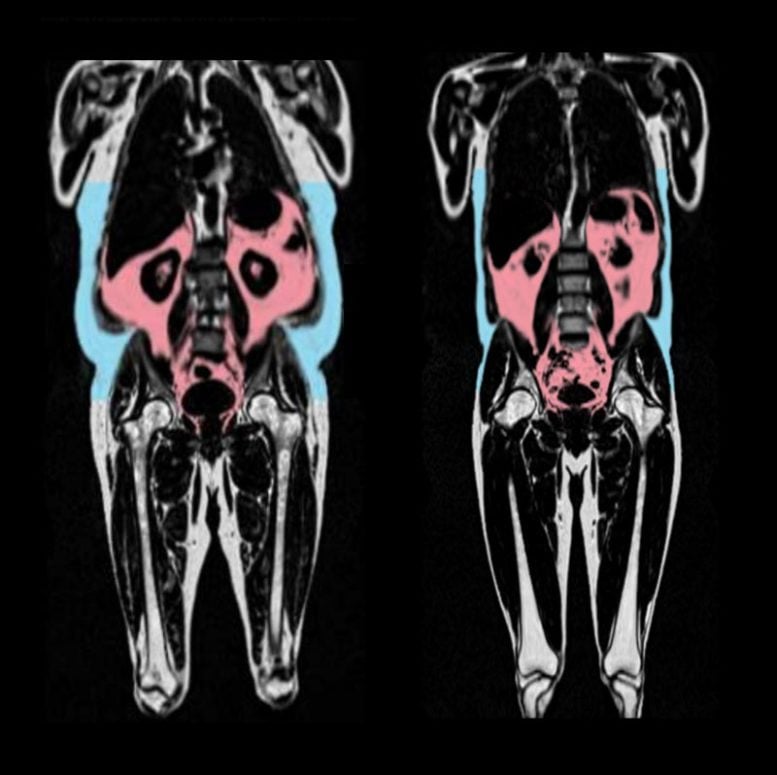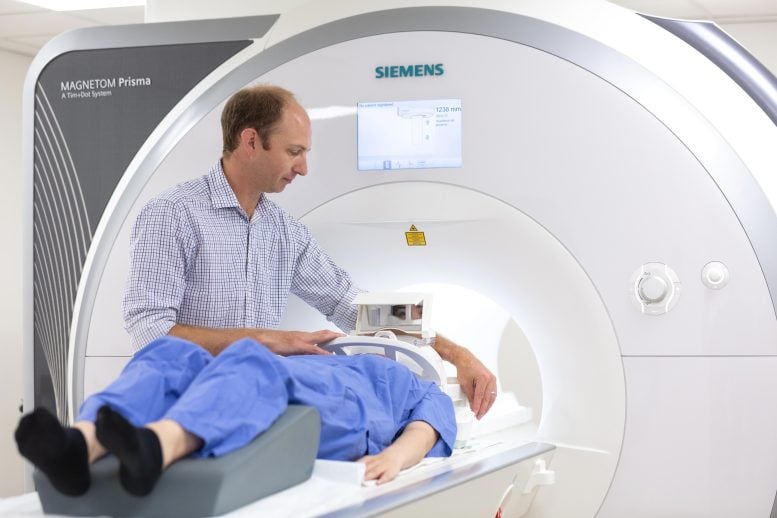
Hidden organ fat speeds up heart aging, while fat around the hips and thighs in women may slow it.
Large amounts of visceral fat, the hidden fat that collects around internal organs, have been linked to a quicker aging process in the heart, according to new research.
While aging is the primary risk factor for heart disease, scientists still do not fully understand why some individuals experience faster cardiovascular aging than others. The team behind this study suggests that visceral fat may be a key contributor, speeding up the aging of both the heart and blood vessels. Although this type of fat has long been associated with negative health effects, the findings provide fresh evidence that it may specifically drive premature heart aging.
The investigation, led by researchers at the Medical Research Council (MRC) Laboratory of Medical Sciences in London, UK, also highlighted notable differences between men and women. It revealed that fat stored around the hips and thighs might actually help slow heart aging in women.

Published in the European Heart Journal, the study examined data from 21,241 UK Biobank participants. This resource includes whole-body imaging, allowing scientists to measure not only the total amount of fat but also its distribution across different parts of the body.
Measuring Heart Age with AI
The UK Biobank data also includes detailed imaging of the heart and blood vessels. Artificial intelligence was used to analyze these images to capture signs of organ aging – such as tissues becoming stiff and inflamed. An individual was given a “heart age” which can be compared to their actual age at the time of the scan.
The researchers found that faster heart aging was linked to having more visceral adipose tissue. Visceral adipose tissue is fat found deep inside the abdomen around organs such as the stomach, intestines, and liver. This type of fat cannot be seen from the outside, and some people can have large amounts of visceral fat despite having a healthy weight.
The researchers found signs on blood tests that visceral fat is linked to increased inflammation in the body – which is a potential cause of premature aging.

They also found differences between the sexes. Male-type fat distribution (fat around the belly, often called ‘apple’ shaped) was particularly predictive of early aging in men.
In contrast, a genetic predisposition to female-type fat (fat on the hips and thighs, often called “pear” shaped) was protective against heart aging in women.
The researchers also found a link between higher estrogen levels in premenopausal women and a slowing of heart aging, which they suggest could indicate a role for hormones in protecting against heart aging.
Expert Insights
Professor Declan O’Regan, who led the research at the MRC Laboratory of Medical Sciences and DOI: 10.1093/eurheartj/ehaf553
Never miss a breakthrough: Join the SciTechDaily newsletter.
Full article can be found at: https://scitechdaily.com/hidden-belly-fat-found-to-accelerate-heart-aging-scientists-warn/







